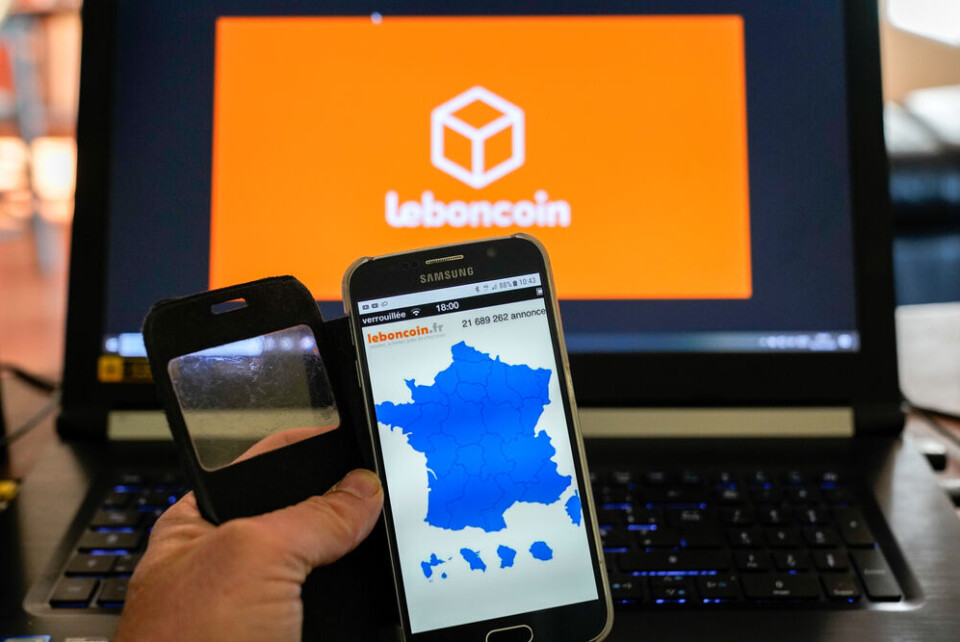-
Scam calls in France more than double in a year
Complaints about unsolicited calls are second only to those about fibre optic internet
-
French police issue warning over new ‘fake bank card’ scam
Accompanying letter asks users to set up new card using fake bank website and QR code
-
French village creates new ‘no door-to-door sales’ sticker
Authorities have also brought in heavy sanctions for unwanted sales approaches
French consumer group warns against new online purchasing scam
It involves faking a payment confirmation on the popular classified adverts site Le Bon Coin so that a seller sends an object to a buyer without the buyer ever having paid

French consumer group UFC-Que Choisir has warned of a potential scam on the popular classified ads website Le Bon Coin, which works in a similar way to eBay with users able to buy or sell goods.
It involves a scammer faking a confirmation of payment so that the seller sends them the item, without payment ever having actually exchanged hands.
UFC-Que Choisir gave the following example.
Elie puts his high-quality computer up for sale on Le Bon Coin for €1,850. He is contacted by a potential buyer who offers to pay for it through the website’s secure payment service.
After exchanging a few messages, the buyer tells Elie that he has decided to purchase the computer and that Elie should receive a notification of payment confirming it via email.
Elie received the seemingly legitimate email a few moments later, detailing the buyer’s name, the price paid, a description of the object purchased and the address of where to send the computer.
But to be sure, Elie decides to double check and reads up on internet forums about Le Bon Coin’s secure system of payment. He discovers that he should not have received confirmation of payment through email, but instead through Le Bon Coin’s private messaging service.
Elie decides not to send his computer, realising that the fake buyer never paid any money for it.
“Le Bon Coin’s messaging system is monitored by the platform's services, whereas an email, however convincing it may be, can be sent by anyone", UFC-Que Choisir states.
It means that you cannot necessarily trust confirmations of payment sent to you by email if someone offers to buy an item from you using Le Bon Coin’s own payment system.
Tips to avoid scams on Le Bon Coin:
- Use the platform’s in-built messaging service
- Exchange money in person, where possible
- Look up reviews or comments on users or items before buying / selling
- If in doubt, ask for advice from customer service
Signs someone is trying to scam you:
- The buyer is prepared to pay more than the asking price or to pay delivery costs
- The delivery address is a relay point and not an actual address
- You receive an email from Le Bon Coin that does not match the usual format of the addresses. These three addresses are correct and officially used by the platform: @leboncoin.fr, @news.leboncoin.fr, @messagerie.leboncoin.fr
- Any other address is suspicious
- The email confirming the payment includes spelling or grammatical mistakes
Related stories
Bird mess, fake restaurants: Six scams to watch out for in France
France scam alert: Watch out for fake emails about inflation bonus
























